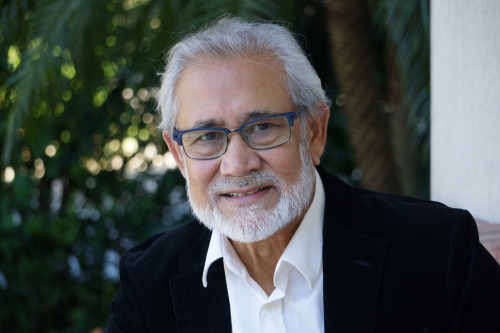Guest blogpost written by author and Muslim American Victor Begg.
Sept. 11, 2001 became the first day of a new calendar: two wars, the passage of the Patriot Act, new terror threats followed by Homeland Security alerts, rampant profiling, and FBI counterterrorism investigations. The result: American Muslims viewed as a suspect community—their constitutional rights violated with impunity in far too many cases.
That day, the world had changed before our eyes. We watched these attacks in real time. We could not stop watching the TV images. The staccato effect of the looped videos was a drumbeat of unthinkable carnage. People already were comparing this to Pearl Harbor.
Until that point, Muslims like me who came to America were quietly pursuing the American dream. I met my wife in graduate school, we started a business upon graduation, Citizenship, a suburban home and kids soon followed. America became home. I was able to give back to our community.
I was appointed to the Michigan Community Service Commission, elected to our local school board, cofounded a mosque, and became active in the Republican Party.
I was worried about backlash. Upon returning from high school, our hijabi daughter said to me, “People weren’t mean, but they had a lot of questions. Her brother, a senior at the same school where she was a junior, has a similar recollection of his feelings: “I was just shocked, but what these extremists did, it doesn’t cancel out the whole Muslim people”. Muslim Americans also died that day. Her older brother, a senior in college remembers, “At first, I didn’t believe a Muslim did it. Then, when they came out with the news that it was, I was pretty upset.”
“Oh, God, let it not be a Muslim!” That’s a new prayer Muslims have learned to pray any time headlines pop up about an explosion or mass shooting since the 1995 terrorist attack that blew up the Alfred P. Murrah Federal Building in Oklahoma City, killing 168 and injuring more than 680. That condemnable attack was the act of domestic terrorism but Muslims were hit with a tidal wave of hatred, media pundits jumped on the conclusion it was a Muslim who did it.
I was thankful when President Bush, at a mosque, firmly expressed the view: “These acts of violence against innocents violate fundamental tenets of the Islamic faith. And, it’s important for my fellow Americans to understand that”. He paraphrased the Quran’s basic principle, 30:10, condemning violence against innocents: “In the long run, evil in the extreme will be the end of those who do evil.”
I stepped up my activism, building interfaith coalitions, working with law enforcement for our security while protecting our rights, and promoting better relationships with neighbors, civic leaders and government agencies while standing up for my faith. With the outreach efforts: cultural and civic participation and working with civil rights groups the Muslim American community today has found its place in America—today we are clearly a part of the American scene. We have three Muslims in the Congress, multiple elected political and civic leaders across America. We have media presence and we’re an active part of our neighborhoods. The challenge today is to stay the course in a divided America. We’re no longer in a survival mode like then. Today, the threat to our freedoms is greater from homegrown terrorism.
After twenty years, the 9/11 anniversary is overshadowed by the Afghan tragedy. Many Americans, too young to remember that infamous day, sacrificed their lives in the wars that followed, along with an untold number of innocent Iraqi, Syrian and Afghan civilian victims.
A crisis like the one in Afghanistan today focuses on the accompanying stereotypical images. With the Taliban in the news, Muslims are concerned once again about reporting that magnifies Islamophobia. Terms like Sharia law, Islamic fundamentalism, treatment of women by Muslims are finding their way into media outlets. Thankfully, we have our First Amendment Rights that allow Muslims to speak up and defend misinformation. Or, as a writer, I have the privilege to offer an opinion editorial to counter with the truth.
Even as we faced challenges, a Pew Research Center report finds that four in five Muslim Americans say they’re concerned but satisfied with the way things are going in their lives, and nine in ten say they are proud to be American and are contributing members of the society.

Victor Begg is the author of the 2019 memoir “Our Muslim Neighbors—Achieving the American Dream; An Immigrant’s Memoir.” Learn more about Victor and his work at www.victorbegg.com.
The opinions stated in this blog are Victor’s own and do not necessarily reflect the views of the First Amendment Museum.

